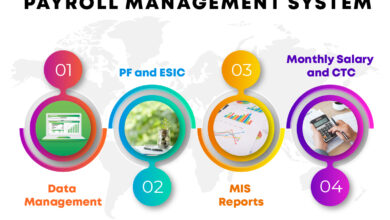What to Expect at a Consultation with a Bankruptcy Attorney

Struggling with debt can be overwhelming, and it’s understandable that you may not know what to do next. That’s where a bankruptcy attorney comes in – they’re trained professionals who can help you navigate the legal process of filing for bankruptcy. However, if this is your first time considering bankruptcy, you may have some questions about what to expect during a consultation with a bankruptcy attorney. In this blog post, we’ll go over everything you need to know so that you can feel confident going into your appointment. So grab a cup of coffee and let’s get started!
What is a bankruptcy attorney?
A bankruptcy attorney is a legal professional specialized in helping individuals and businesses navigate through the process of filing for bankruptcy. These attorneys are familiar with all aspects of bankruptcy law, including different types of bankruptcies, timelines, requirements, and exemptions.
Bankruptcy lawyers provide guidance on how to file for Chapter 7 or Chapter 13 bankruptcy depending on your financial situation. They can also explore other alternatives to declaring bankruptcy such as debt consolidation or negotiation with creditors.
When you hire a bankruptcy lawyer, they will represent you throughout the entire process from explaining the pros and cons of each type of filing to preparing petitions to appear in court if necessary. A good attorney works closely with clients to understand their unique financial situation while providing tailored solutions that meet their specific needs.
Hiring a skilled and experienced bankruptcy attorney can help alleviate some stress during an already challenging time by offering expert advice and advocacy throughout the process.
Types of bankruptcy
Bankruptcy is a legal process that allows individuals and businesses to eliminate or repay their debts under the protection of the bankruptcy court. There are different types of bankruptcy, each with its own set of rules and requirements.
Chapter 7 bankruptcy, also known as “straight bankruptcy,” is the most common type of bankruptcy for individuals. It involves liquidating non-exempt assets to pay off creditors. Most unsecured debts are discharged in Chapter 7, but some debts such as tax obligations may not be eligible for discharge.
Chapter 13 bankruptcy allows debtors to reorganize their finances and create a repayment plan over three to five years. This option is usually available for those who have regular income and can afford monthly payments towards their debts.
Chapter 11 is typically used by businesses that want to restructure their debt while continuing operations. This type of bankruptcy gives companies time to renegotiate contracts with suppliers, reduce labor costs, or sell assets to raise funds.
Each type of bankruptcy has its advantages and disadvantages depending on your financial situation. Consulting with an experienced bankruptcy attorney will help you determine which type best suits your needs while protecting your interests throughout the process.
What to expect during a consultation with a bankruptcy attorney
During a consultation with a bankruptcy attorney, you can expect to provide detailed information about your financial situation. The attorney will want to understand the nature and extent of your debt, as well as your income and assets.
The attorney may ask questions about your expenses and any legal actions that have been taken against you for non-payment of debts. They may also inquire about any recent transfers of property or other financial transactions.
Based on this information, the attorney will discuss which types of bankruptcy options are available to you. They will explain how each option works and what impact it could have on your credit score.
If you decide to move forward with filing for bankruptcy, the attorney will help you prepare all necessary paperwork and documentation. They may also advise you on steps to take in order to protect certain assets during the process.
It’s important to be honest and forthcoming during your consultation so that the bankruptcy attorney can provide accurate advice tailored specifically to your situation. Remember that they are there to help guide you through this difficult time and find a solution that works best for you.
The impact of bankruptcy on your credit score
Filing for bankruptcy can have a significant impact on your credit score. In fact, it is one of the most negative things you can do to your credit history. A bankruptcy filing will remain on your credit report for up to 10 years and will affect your ability to get loans, credit cards, or even rent an apartment.
The extent of the damage caused by a bankruptcy filing depends on several factors including the type of bankruptcy filed, how much debt was discharged, and what other negative information may be present in your credit report. Generally speaking though, a Chapter 7 bankruptcy filing has more severe consequences than a Chapter 13 filing.
If you file for Chapter 7 relief, all of your unsecured debts (such as credit card balances) are wiped out completely. This may sound like a good thing but it also means that you will have no payment history with those creditors going forward which could negatively impact your score.
On the other hand, if you file under Chapter 13 then you’ll be required to make monthly payments towards repaying some or all of your debts over three to five years. During this time period any missed payments will still show up on your report but if you successfully complete the repayment plan then they’ll be removed after seven years.
In any case, it’s important to understand that while declaring bankruptcy may provide short-term relief from overwhelming debt obligations; it comes at a long-term cost in terms of future borrowing opportunities and higher interest rates due to lower scores.
Documents you will need for a consultation with a bankruptcy attorney
When you schedule a consultation with a bankruptcy attorney, it’s important to come prepared. In order for the attorney to give you accurate advice and guidance, they will need specific documents related to your financial situation.
Firstly, you should bring all of your recent bills including credit card statements, medical bills, and any other outstanding debts. These will help the attorney understand the extent of your financial troubles and what types of debts are involved.
You should also bring documentation related to your income such as pay stubs or tax returns. This will allow the attorney to determine whether Chapter 7 or Chapter 13 bankruptcy is more appropriate for you based on your means test results.
Additionally, if you have any assets such as real estate or vehicles, be sure to bring proof of ownership along with their current market value. The attorney may need this information in order to determine how these assets could be affected by bankruptcy proceedings.
It’s important to provide any legal documents related to ongoing lawsuits or judgments against you. This includes court orders and liens that may impact your ability to discharge certain debts through bankruptcy.
By coming prepared with these important documents during your consultation with a bankruptcy attorney, you can ensure that they have all the necessary information needed in order for them guide towards a successful resolution for debt relief.
Conclusion
If you’re considering filing for bankruptcy, consulting with a bankruptcy attorney is an essential step in the process. A qualified attorney can provide valuable guidance and help you navigate the complex legal system to achieve the best possible outcome.
During your consultation, be prepared to discuss your financial situation openly and honestly. Your attorney will use this information to determine which type of bankruptcy is right for you and develop a plan that fits your unique needs.
Remember that filing for bankruptcy isn’t something to take lightly, but it can offer relief from overwhelming debt and allow you to start fresh. With the help of an experienced bankruptcy attorney, you can regain control of your finances and move forward toward a brighter future.



